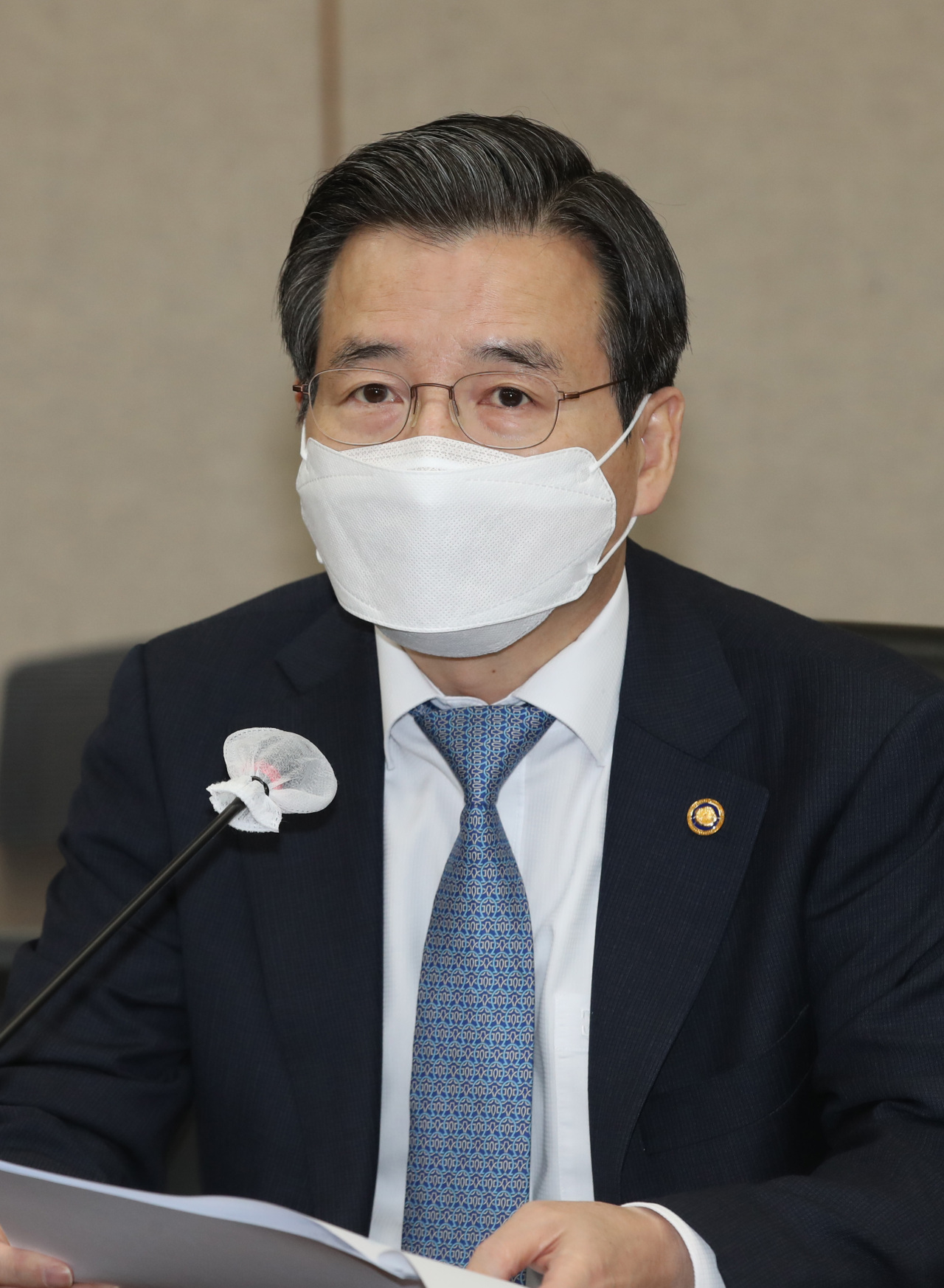
South Korean Vice Finance Minister Kim Yong-beom (Yonhap)
South Korea's vice finance minister said Thursday uncertainties surrounding the US presidential election will have limited impact on the local financial and foreign exchange markets, vowing for swift countermeasures if market volatility increases.
“The US presidential election risks have already been reflected in the local financial markets. Since the US government is likely to maintain its quantitative easing policies, there is a limited possibility of volatility in the local financial and FX markets,” said Kim Yong-beom, first vice minister of finance, said in a meeting with related officials to discuss policies on macroeconomic and financial affairs held at the headquarters of the Korea Development Bank, Seoul.
The results of the 2020 US presidential race, which kicked off on Tuesday, were expected to be more clear by Thursday, US time, as mail-in votes were still being counted in key battleground states.
The US government’s economy policy direction may change in accordance with the election results. However, whoever wins the election, their next administration might keep the current money easing measures in order to counter economic gloom exacerbated by the COVID-19 resurgence, Kim added.
The vice minister also pledged the government‘s swift response to market volatility following the US election.
“After the US election is finally settled, the authorities will take steps to swiftly respond to possible changes in the US government policies and subsequent market volatility,” he said.
Meanwhile, various economic indicators showed an upswing, heightening possibility that the local economy will return to modest growth in the fourth quarter, he added.
Asia‘s fourth largest economy saw industrial output, consumption and facility investment increase in September. The overall industrial production gained 2.3 percent on-month, following a 0.8 percent on-month decline in August, while retail sales rose 1.7 percent from a month earlier, and facility investment soared 7.4 percent on-month, according to data from Statistics Korea.
By Choi Jae-hee (
cjh@heraldcorp.com)






